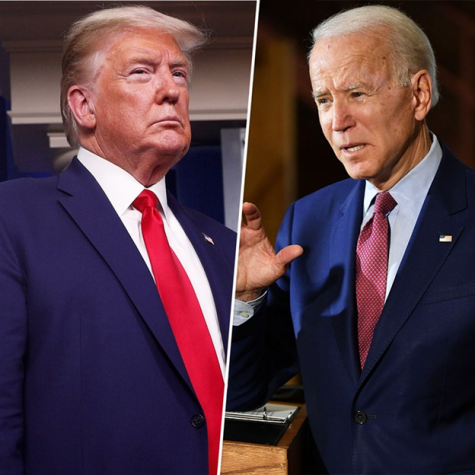How Independent Candidates Can And Continue To Affect The Election

November 3, 2020
 American voters anxiously await the general election held today at 6:00 a.m., with their main concern being whether President Donald Trump or former Vice President Joe Biden will assume the position as President of the United States. However, very few voters have familiarized themselves with the other candidates running for office, let alone consider them worthy of their vote.
American voters anxiously await the general election held today at 6:00 a.m., with their main concern being whether President Donald Trump or former Vice President Joe Biden will assume the position as President of the United States. However, very few voters have familiarized themselves with the other candidates running for office, let alone consider them worthy of their vote.
Aside from the Republican & Democratic party nominees, there are a total of three candidates American voters were able to choose from. These candidates include Brian Carroll, nominee of the American Solidarity Party, Jo Jorgensen, nominee of the Libertarian Party, and Howie Hawkins, nominee and co-founder of the Green Party. These are very prominent political figures, some of which have had election experience Donald Trump Joe Biden in the past. (Republican Party) (Democratic Party)

Additionally, they provide an outlet for citizens that do not support either Donald Trump or Joe Biden. And yet, no one seems to take them into consideration when casting their vote specifically because they are independent candidates.
Howie Hawkins Jo Jorgensen Brian Carroll (Green Party) (Libertarian Party) (Solidarity Party)
“You shouldn’t vote for an independent candidate because in our two-party system you are essentially throwing your vote away,” Dr. Kristin Letourneau said. “The independent candidate has virtually no chance of winning, and votes for that person will siphon off votes for one of the major party candidates.”
The reason as to why independent candidates are often overshadowed by the republican and democratic nominees is that the odds of them winning are so astronomically small that voters often see them as insignificant, with the only effect they have on the election being that they further the division of a given party’s votes. However, too much emphasis on the victory of a political party rather than on choosing a valuable leader can lead to voters making irrational or selfish decisions when filling out their ballots.
“I do think people often stop thinking and rely more on party affiliations than they should,” Dr. Letourneau said. “It can encourage intellectual laziness.”
Even in the 2016 presidential election between Hillary Clinton and Donald Trump, an election infamous for several voters not fully supporting either candidate, many voters would still vote for a candidate they do not believe in simply to lower the chances of a less qualified candidate from winning the presidency.
“I’ll tell you what, I didn’t really want to vote for Trump,” senior citizen Neil Schiffhauer said. “But that would’ve been a vote for Hillary if I didn’t.”
If the people who voted for a candidate specifically to lower the other candidate’s votes instead voted for an independent party, that candidate may actually have a chance of winning.
“I think third party candidates are good in that they bring new ideas and perspectives,” Dr. Letourneau said. “At 30% or more of the vote, the independent candidate is approaching plausible electability.”
The outcome of the 2020 presidential election will be revealed on Jan. 6, 2021, and if it is not one’s desired outcome, perhaps they should consider broadening their political spectrum for the next election. Perhaps voting for an independent candidate would not be the best choice, perhaps the division caused by that vote is what caused the undesired result in the first place, but ignoring a candidate one could potentially believe in in order to vote between two unlikable candidates is a debatably arrogant choice. Whether republican, democrat, or independent, strong leadership should always be held above the colors of one’s party.
